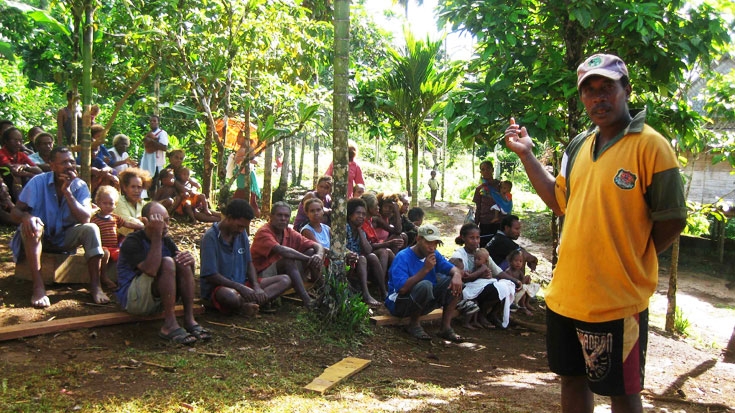Key findings:
- The non-state kastom system, typically equated with the authority of “chiefs,” is the most commonly used mechanism to deal with disputation and grievance in rural Solomon Islands. Churches are also frequently utilized. Both systems are well understood and are regarded as having a legitimate mandate to deal with various localized problems.
- The kastom system is increasingly fragile in many locations, and is not dealing effectively with either substance abuse or land disputes. Land-related disputes in particular are, in many respects, contributing to an erosion of the effectiveness and legitimacy of the kastom system. In some places, the system appears to have broken down altogether, due to the entanglement of chiefs and local leaders in self-interested power struggles, especially in areas experiencing logging.
- All existing institutional mechanisms, including the court system, are unable to deal effectively with disputation arising from logging. Where the kastom system has been severely undermined by the entanglement of chiefs in logging activities, local processes are incapable of mediating logging related conflicts, and affected citizens are, more often than not, left without remedy.
- Despite generally negative sentiments about state policing and court services, the state is nevertheless regarded as a legitimate player in local-level governance and dispute management, and there is a strong call for the revival and expansion of the state presence.
- Contemporary state resources are overwhelmingly concentrated in the capital, Honiara, with only a limited presence in provincial capitals. Outside the areas of health and education, the state has the most tenuous of connections with rural communities.
- Contemporary governance innovations – of which many examples were found – derive, in part, from the colonial experience, and the establishment of a variety of committees, councils, panels, houses, and associations at various political levels (community, ward, and province) has left an enduring legacy. Often these initiatives are tailored toward fostering development, but in some forms also play a community governance and dispute-management role.

